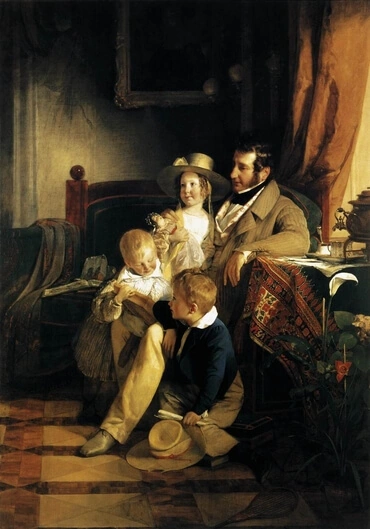1
IL Signore disse, oltre a ciò, a Mosè: Parla a’ sacerdoti, figliuoli di Aaronne, e di’ loro: Non contaminisi alcun sacerdote fra’ suoi popoli, per un morto,
2
se non è per alcun suo prossimo carnal parente; per sua madre, per suo padre, per suo figliuolo, per sua figliuola, e per suo fratello;
3
o per una sua sorella germana, che sia vergine, e che non abbia avuto marito; per una tale potrà contaminarsi.
4
Non contaminisi fra’ suoi popoli, come marito, in maniera che si renda immondo.
5
Non dipelinsi il capo, e non radansi i canti della barba, e non facciansi tagliature nelle carni.
6
Sieno santi all’Iddio loro, e non profanino il Nome dell’Iddio loro; conciossiachè essi offeriscano i sacrificii che si fanno per fuoco al Signore, le vivande dell’Iddio loro; perciò sieno santi.
7
Non prendano donna meretrice, nè viziata, nè donna ripudiata dal suo marito; perciocchè son santi all’Iddio loro.
8
Santificali adunque; conciossiachè essi offeriscano le vivande dell’Iddio tuo; sienti santi; perciocchè io, il Signore che vi santifico, son santo.
9
E se la figliuola di un sacerdote si contamina, fornicando, ella contamina suo padre; sia arsa col fuoco.
10
Ma il Sacerdote, il sommo fra’ suoi fratelli, sopra il cui capo sarà stato sparso l’olio dell’Unzione, e il quale sarà stato consacrato per vestire i vestimenti sacri, non iscoprasi il capo, e non isdruciscasi i vestimenti.
11
E non entri in luogo dove sia alcun corpo morto; non contaminisi, non pur per suo padre, nè per sua madre.
12
E non esca fuori del Santuario, e non contamini il Santuario dell’Iddio suo; perciocchè il Diadema dell’olio dell’Unzione dell’Iddio suo è sopra lui. Io sono il Signore.
13
E prendasi moglie che sia ancora vergine.
14
Non prenda queste: nè vedova, nè ripudiata, nè viziata, nè meretrice; anzi, prenda per moglie una vergine dei suoi popoli.
15
E non contamini la sua progenie ne’ suoi popoli; perciocchè io sono il Signore, che lo santifico.
16
Il Signore parlò ancora a Mosè, dicendo:
17
Parla ad Aaronne, e digli: Se alcuno della tua progenie, per le loro età, ha in sè alcun difetto, non s’appressi per offerir le vivande dell’Iddio suo.
18
Perciocchè niun uomo, in cui sia difetto, vi si deve appressare; nè il cieco, nè lo zoppo, nè colui che ha il naso schiacciato, o smisurato.
19
Nè colui che ha rottura nel piè, o rottura nella mano.
20
Nè il gobbo, nè colui che ha panno o albugine nell’occhio, nè colui che ha scabbia, o volatica; nè l’ernioso.
21
Niun uomo adunque, della progenie del Sacerdote Aaronne, in cui sia alcun difetto, s’appressi per offerire i sacrificii fatti per fuoco al Signore; vi è difetto in lui; perciò, non si appressi per offerir le vivande dell’Iddio suo.
22
Ben potrà egli mangiar delle vivande dell’Iddio suo, così delle santissime, come delle sante.
23
Ma non venga alla Cortina, e non si appressi all’Altare; perciocchè vi è in lui difetto; e non contamini i miei luoghi santi; perciocchè io sono il Signore che li santificio.
24
E Mosè disse queste cose ad Aaronne e a’ suoi figliuoli, e a tutti i figliuoli d’Israele.







